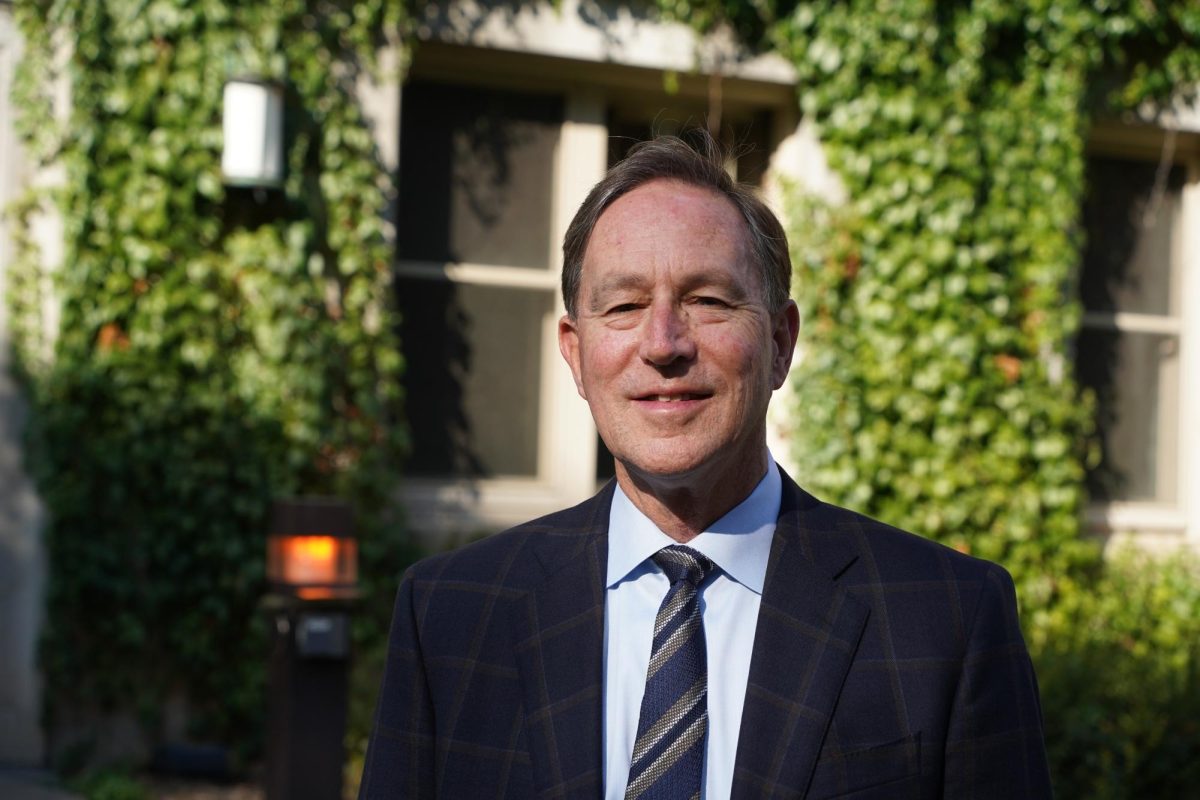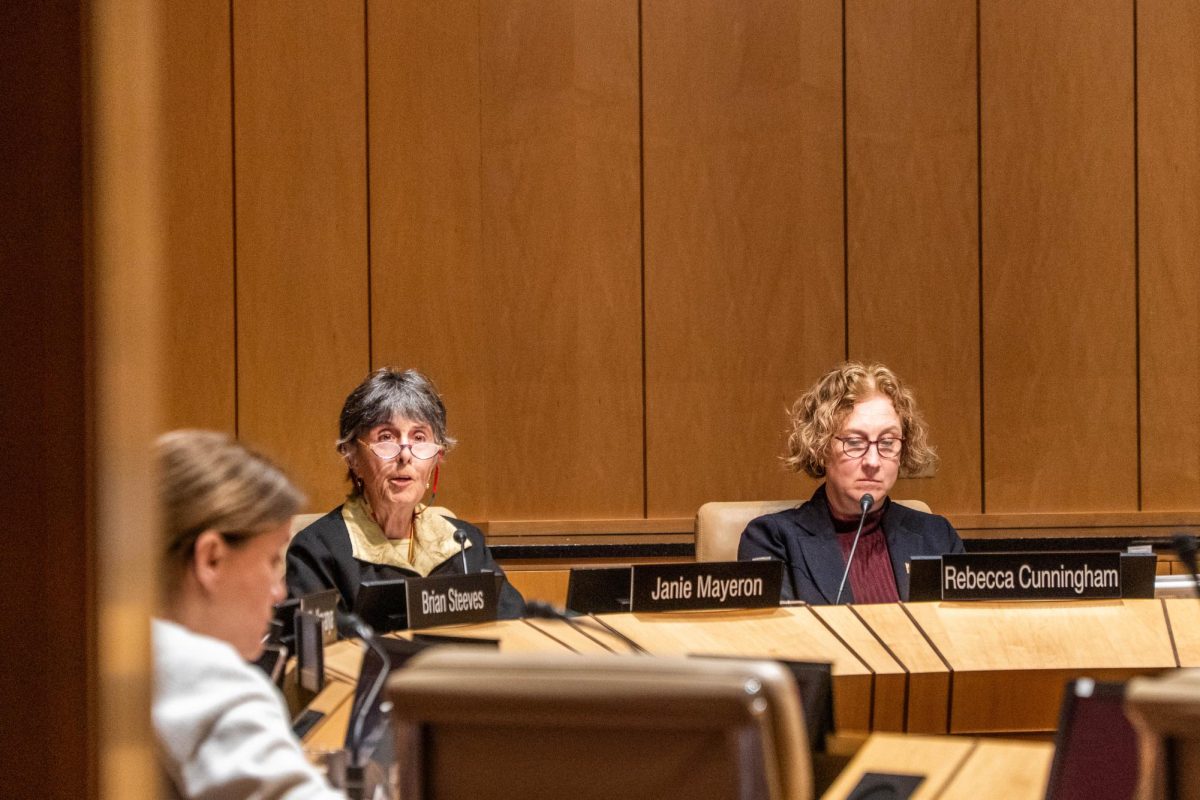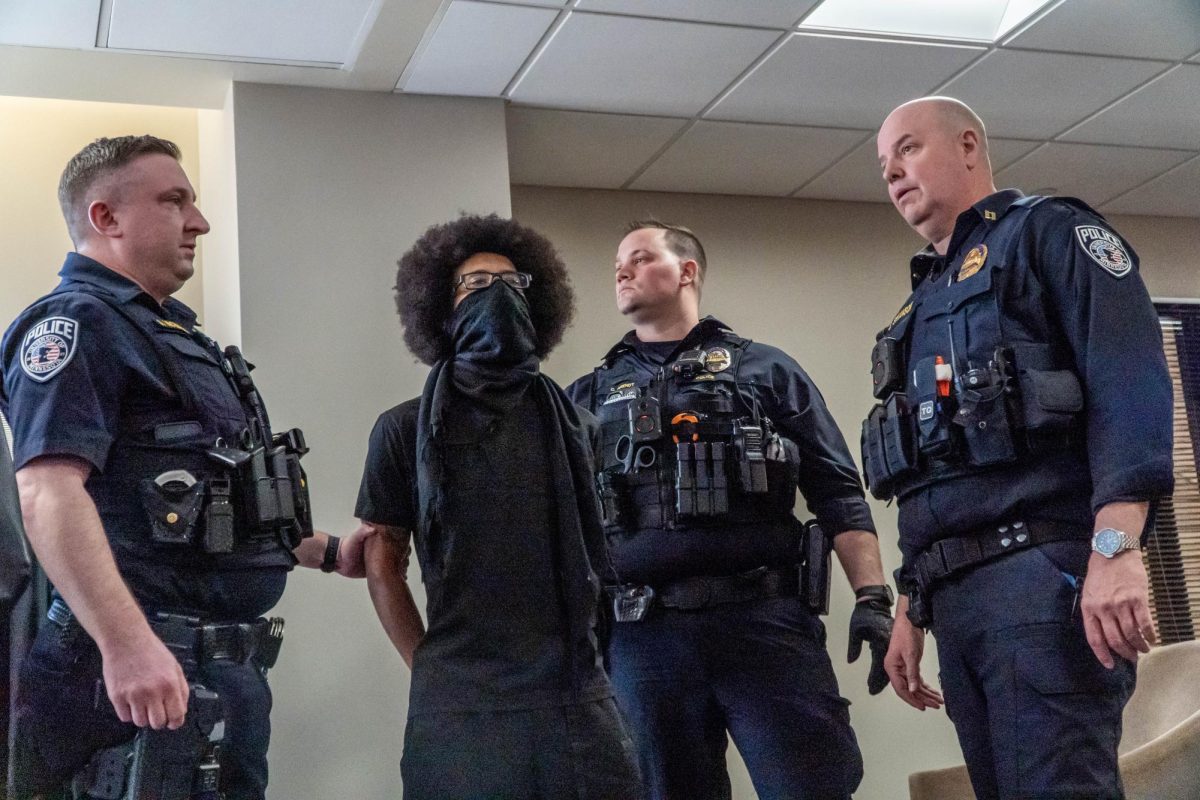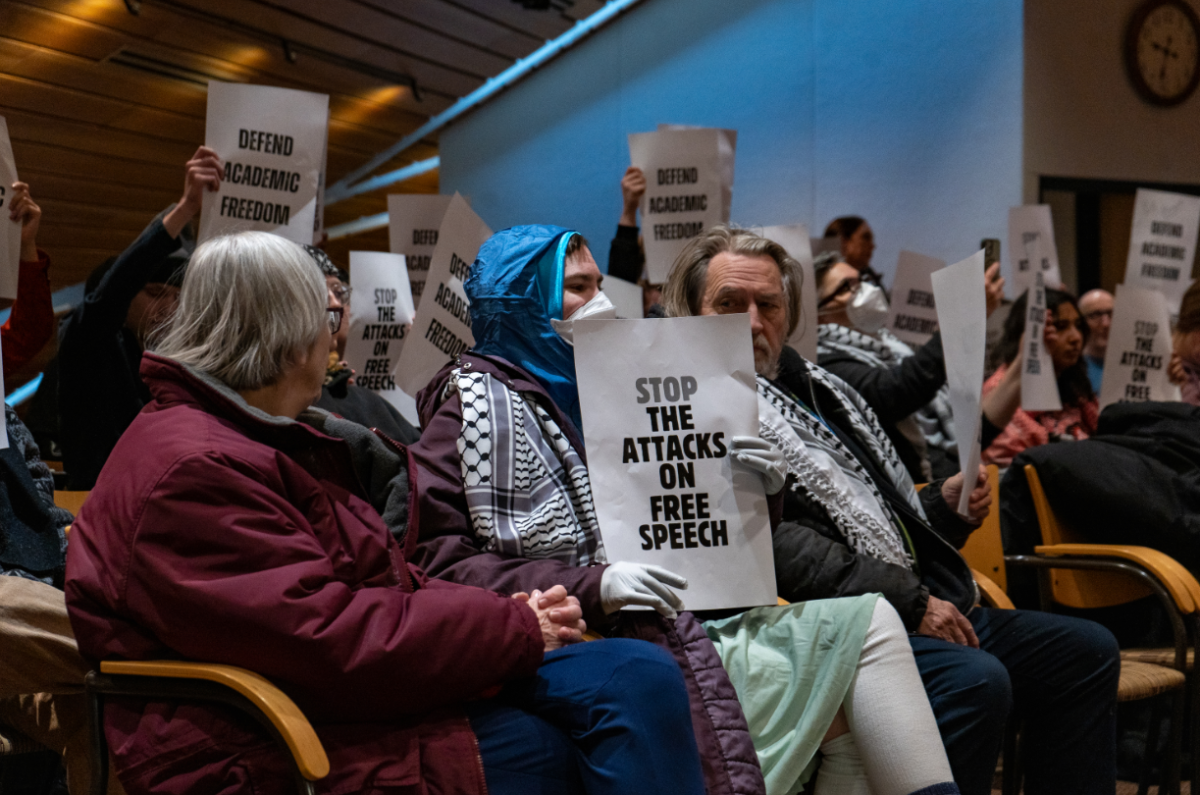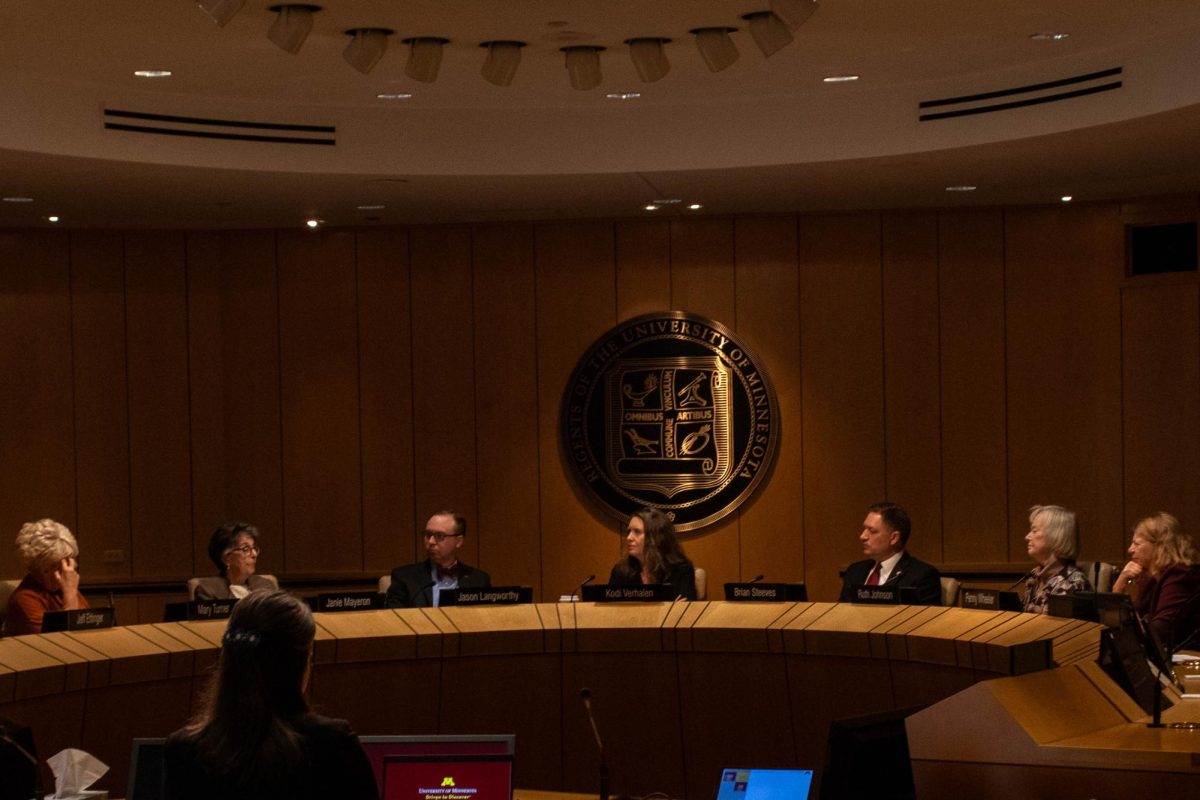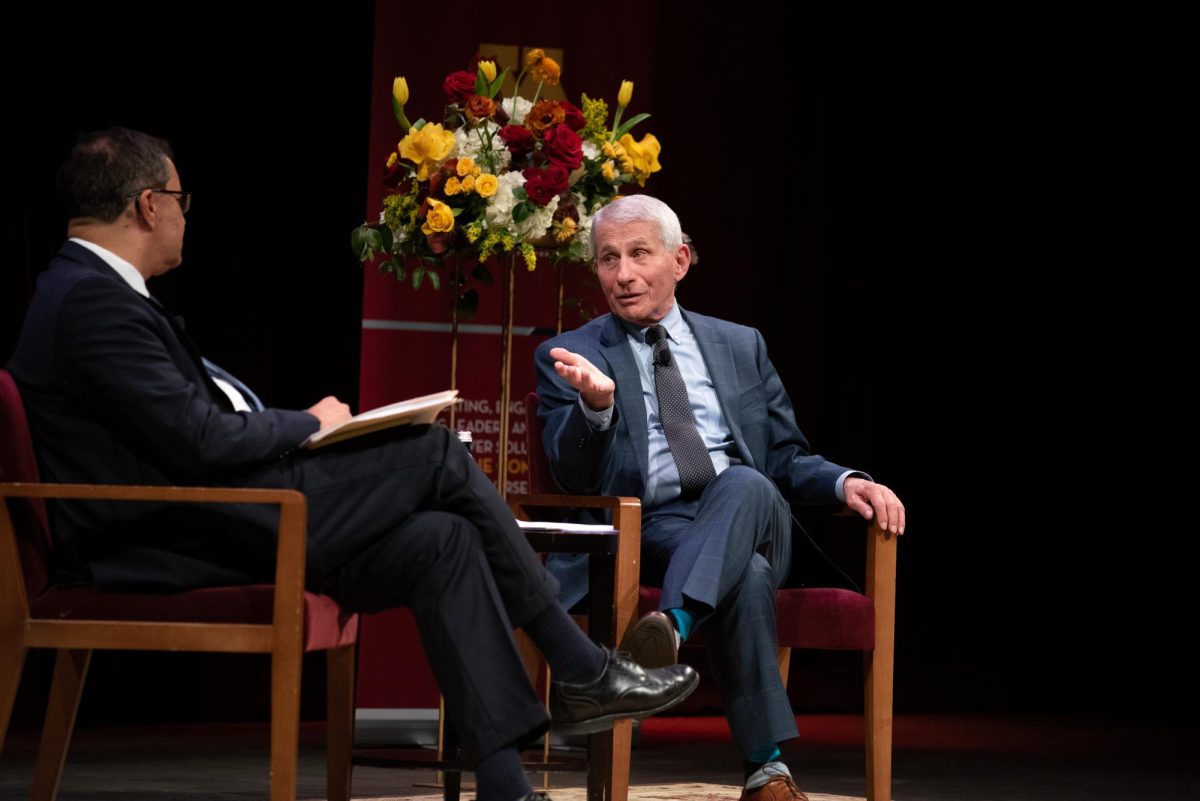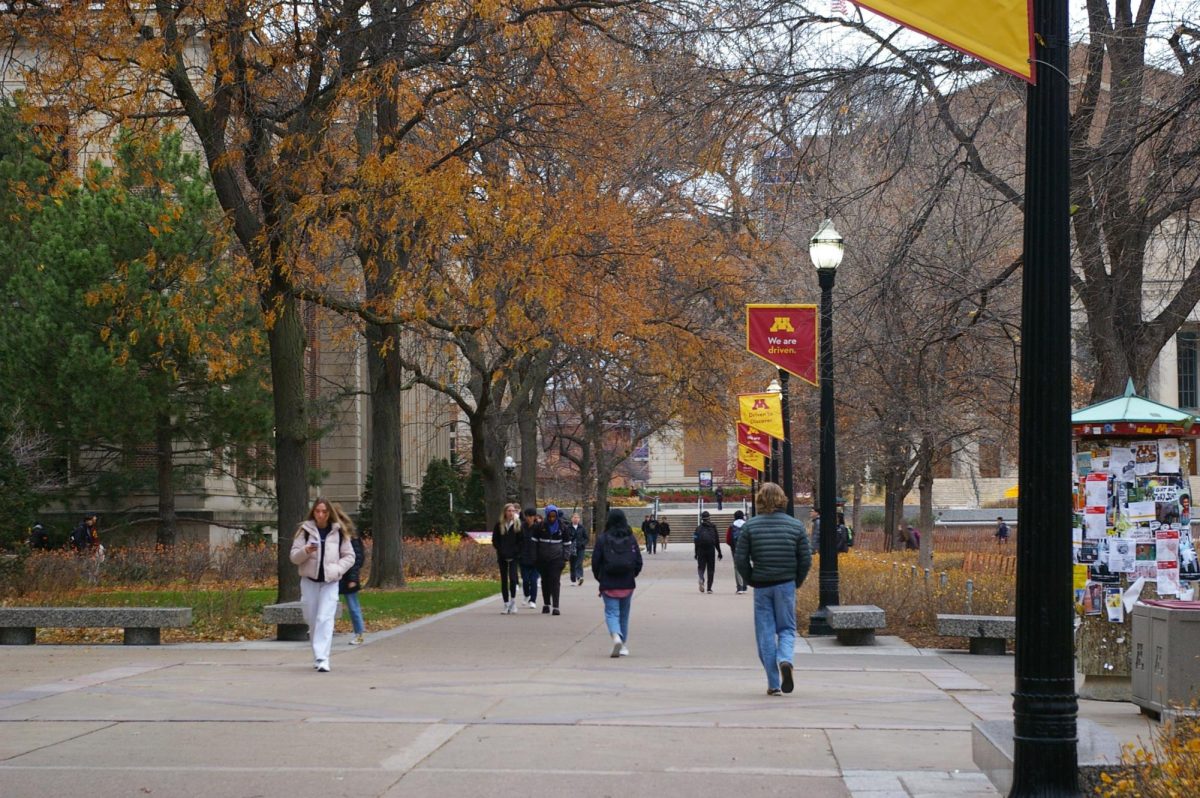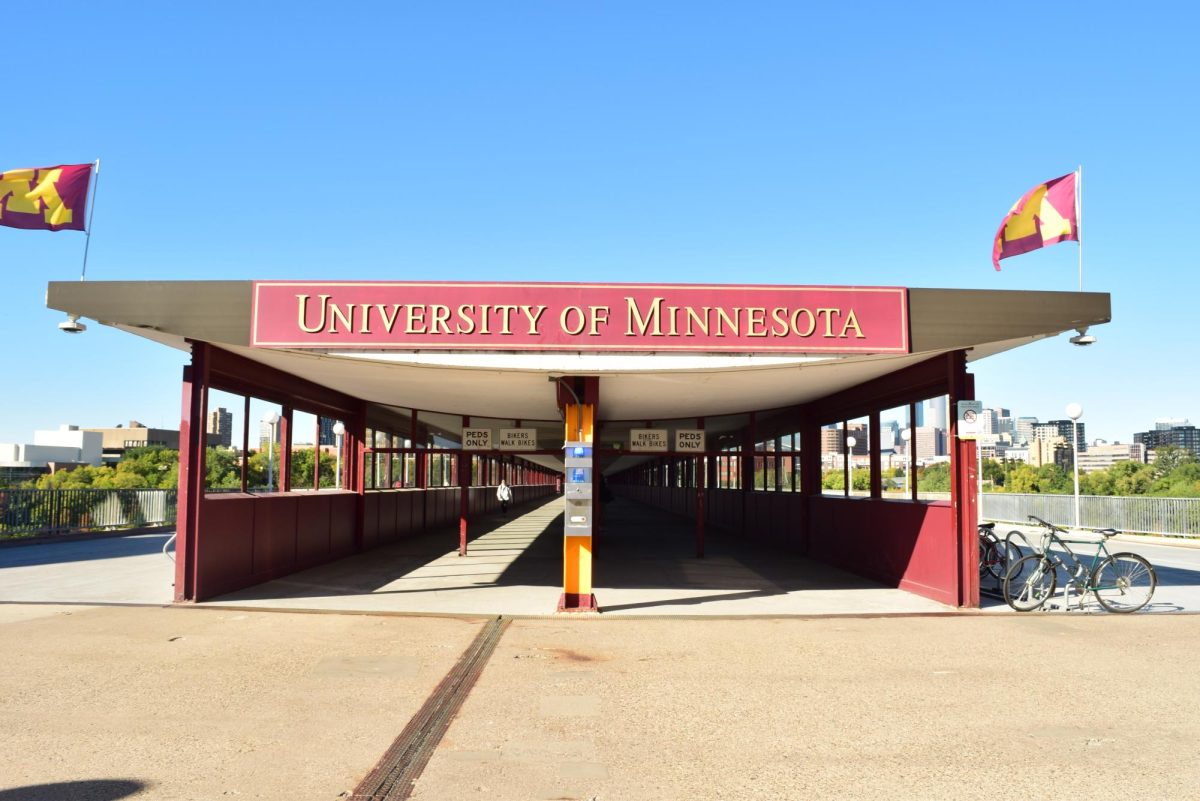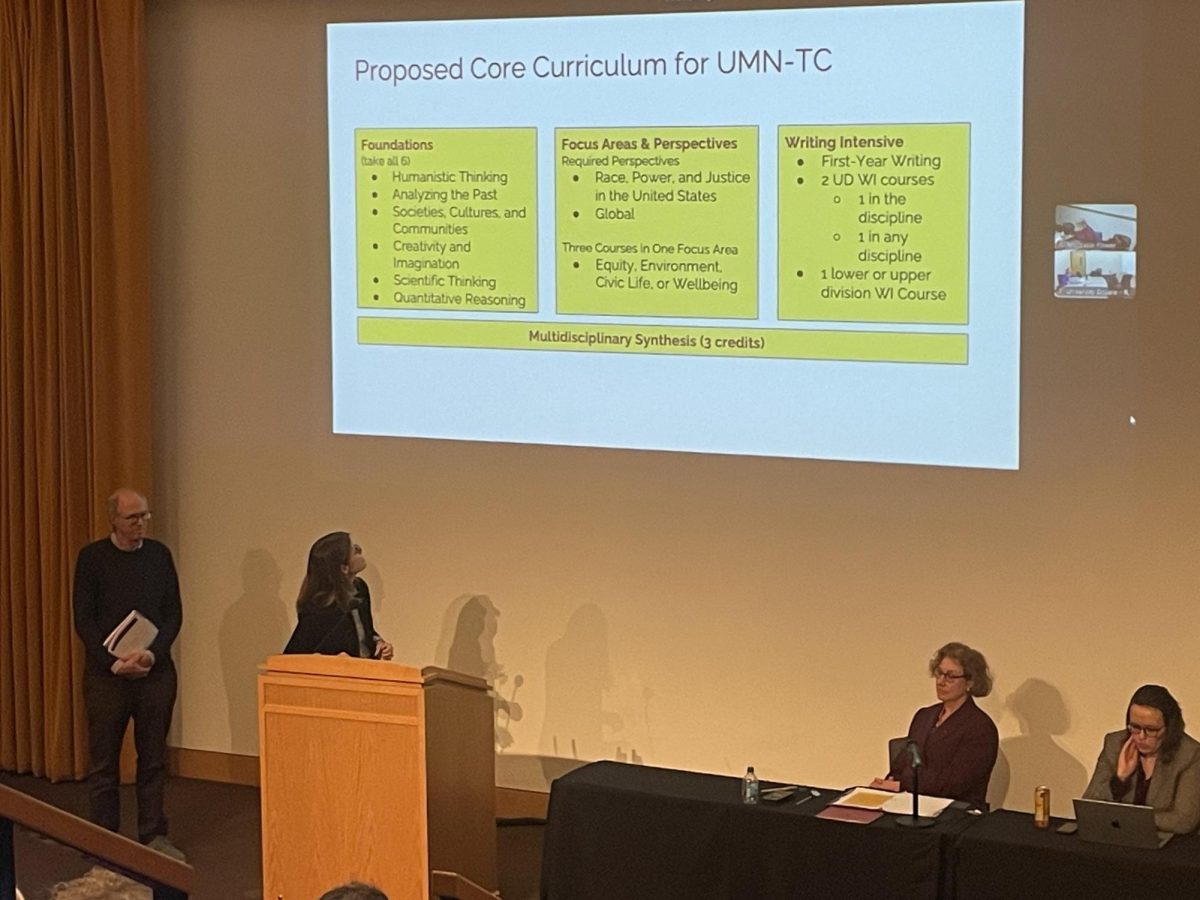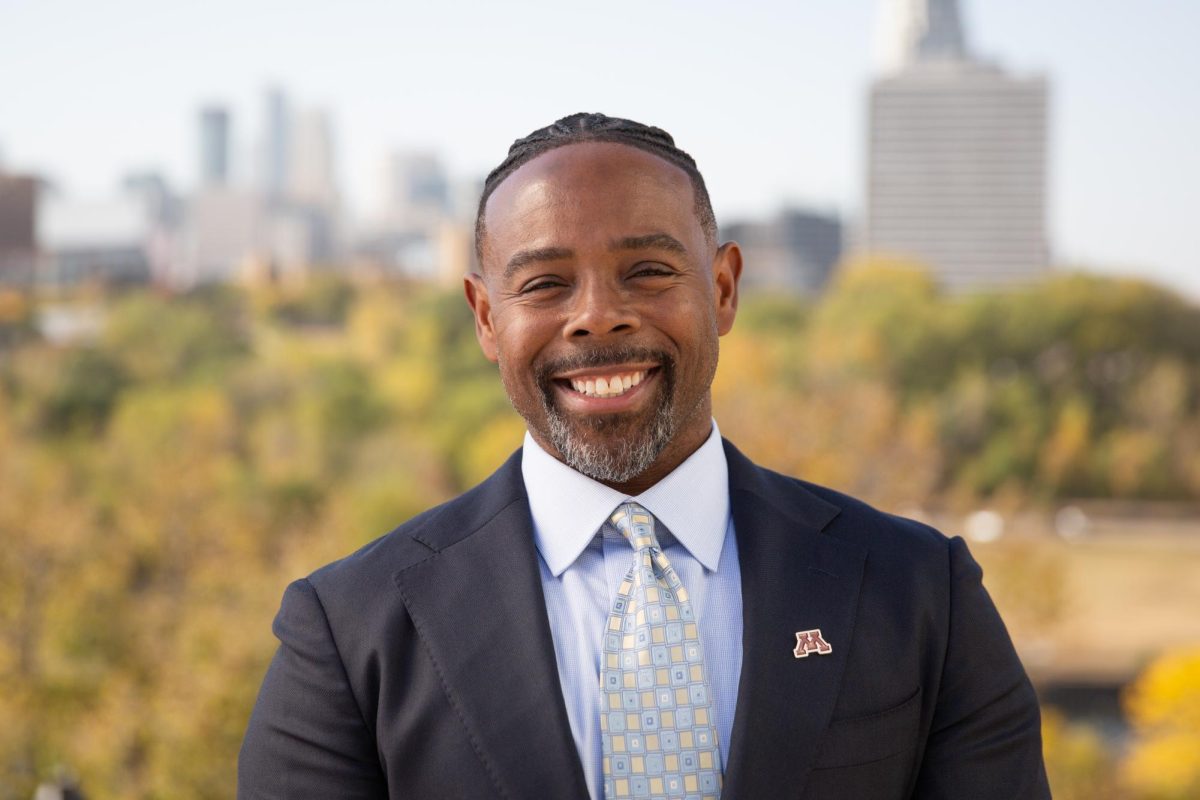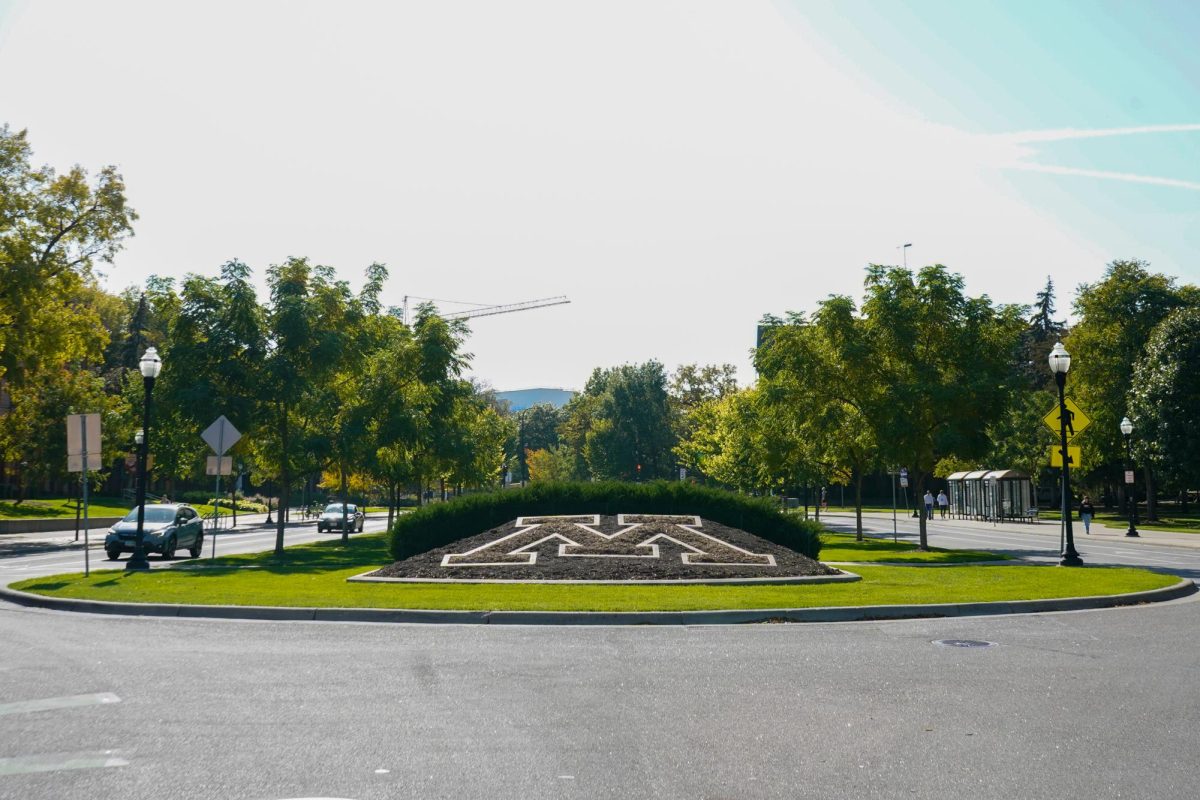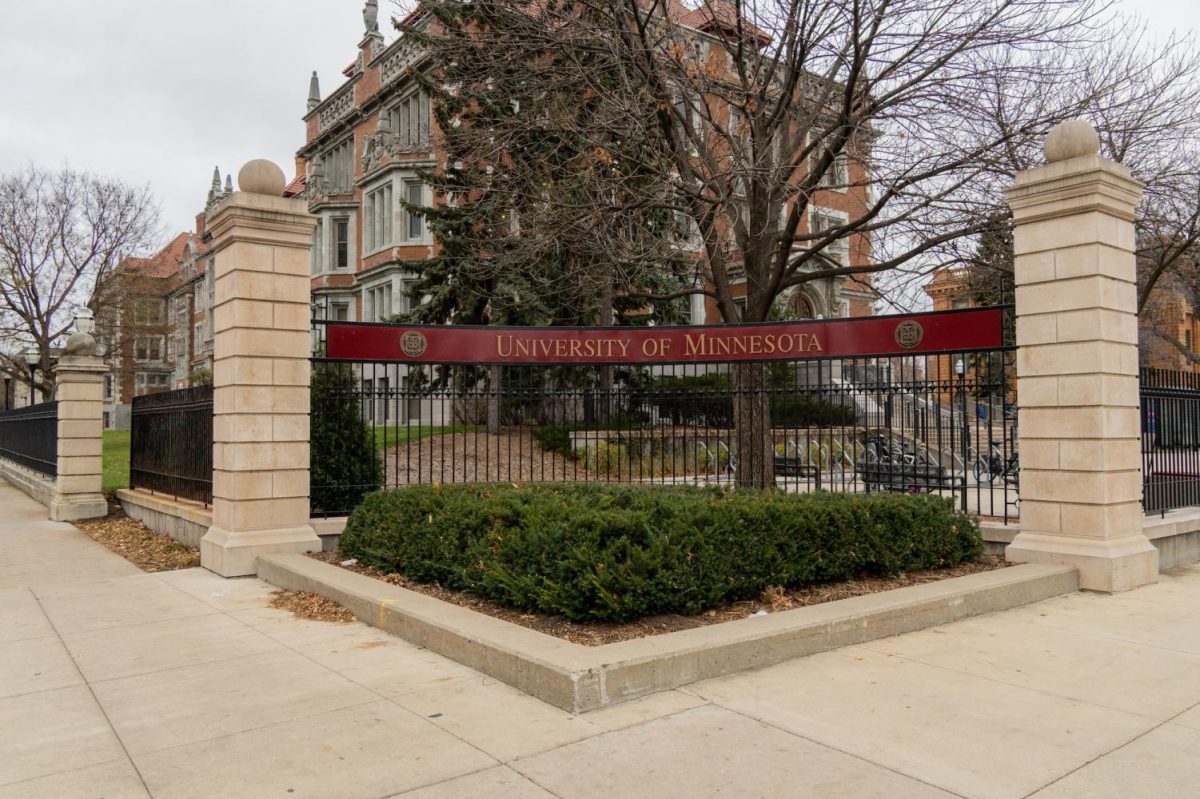Feeling they were largely excluded from the University of Minnesota’s interim president search last spring, members of the Registered Student Governance Associations (RSGAs) expressed concerned about student inclusion in the search for a full-time president.
The RSGAs are made up of the Council of Graduate Students (COGS), Undergraduate Student Government (USG) and Professional Student Government (PSG). In a joint letter released Tuesday, the groups voiced concerns about insufficient student inclusion in the Presidential Advisory Search Committee’s (PSAC) formation.
“There is a particular lack of clarity regarding the composition and role of the search committee, along with a notable absence of concrete strategies for involving the RSGAs in this pivotal undertaking,” the letter said.
Mary Kate Wolken, COGS’ Representative to the Student Senate Consultative Committee, said she is worried RSGA perspectives will be excluded, given their exclusion from official consultation during the interim president search.
“We’re very concerned that this is a pattern that’s repeating itself,” Wolken said.
During former University President Joan Gabel’s confirmation, students made up two of 23 positions on the search committee, according to the Pioneer Press.
Members of the RSGAs expressed disappointment in this prior exclusion, given University student governments exist to provide constituents with a network to discuss issues with their elected student representatives. Wolken said she feels the University has decided to form its own network, which locks student representatives out under the guise of transparency.
“The whole point of us existing is to serve as an official microphone for our respective students’ voices,” Wolken said.
In email correspondence between COGS and the Board of Regents, the Regents promised a search committee built to reflect the University’s breadth by including representatives from the board, faculty, students, staff, alumni and the broader University community. The regents also said there would be no seats reserved for a particular group, though they encouraged COGS to submit nominations.
Patrick McCormick, COGS director of communications, said he did not feel it was acceptable for the Regents to assemble a search committee in a private sphere based on nominations.
“It suggests that we either don’t have the right or are not capable of choosing who represents our interests,” McCormick said.
While COGS understands the impossibility for a search committee to perfectly represent its constituents, it asserts the importance of having student voices in the room, McCormick said.
“What we need is a Board of Regents that thinks of this community as filled with stakeholders rather than subjects that the Board of Regents rules,” McCormick said.
Carter Yost, USG’s government and legislative affairs director, similarly acknowledged that selecting a new president is under the Regents’ fundamental jurisdiction but said the University should honor its commitment to shared governance between stakeholders.
“I don’t think that it is an intentional exclusion. I think it’s, if anything, an opportunity for the board and an opportunity for administrators to demonstrate and live up to that stated value and goal,” Yost said.
In a statement, Board of Regents Chair Janie Mayeron encouraged all students to participate in listening sessions, suggest potential candidates and provide feedback on finalists. Those details will be provided on the presidential search website at a later date.
Mayeron also expressed her joy in knowing students wanted to be involved in the process and offered reassurance they would be, according to her statement.
“We were pleased to see dozens of students nominated to serve on the presidential search advisory committee,” Mayeron said. “They will receive full consideration, along with the many other faculty, staff, alumni and community member nominees submitted to us.”
These sentiments are similar to those that were said to members of USG and COGS. Though these groups appreciate the intention, they hope for more action from the regents.
“We just want to make sure that this incredibly important decision considers, to the extent that is necessary, the voices, values, perspectives and priorities of students,” Yost said.
McCormick hopes student inclusion in this search process will be an indicator of the University’s treatment of student perspectives moving forward.
“If Minnesota wants to be the kind of place that attracts talented students they need values that stand for something more than just sort of window dressing,” McCormick said. “They need to show that this is the special place that so many people believe it to be, want it to be or used to think it was.”


